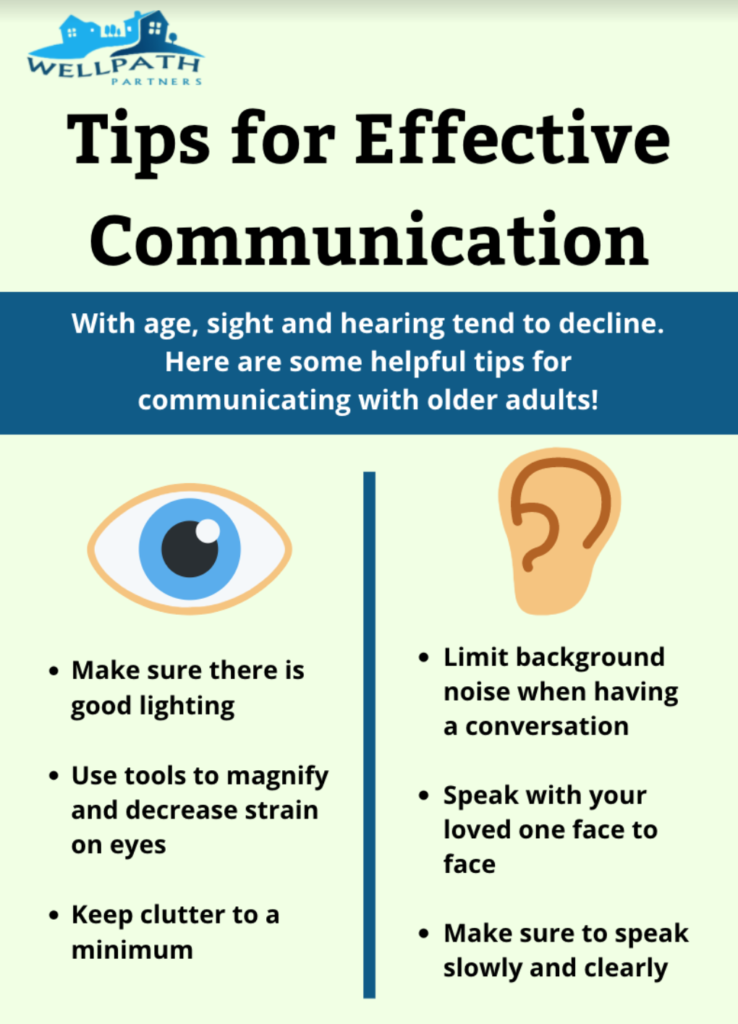
According to the National Institute of Health, more than half of older adults have either vision or hearing decline by the age of sixty-five. For many, losing full control of their senses can be a scary and frustrating experience. It is essential for these individuals to have a support system in in order for them to have a smooth transition as they adapt. When assisting a loved one, the biggest thing to remember is to be patient with them. They may be afraid or angry that this is happening to their body, so remember to take it day by day. Here are some helpful tips!
Vision Decline
1. Make sure there is good lighting.
- Add desk lamps, night lights, and portable lamps to common areas for more optimal lighting
2. Incorporate more contrasting colors in the household.
- Choose a dark towel if the wall it is hanging on is a light color
3. Use tools to magnify words and decrease strain on eyes.
- Increase text size on cell phone, see if there are any other options for visually impaired
- Keep magnifying glasses or other magnifying tools to better read prescription bottles and other household items
4. Keep clutter to a minimum.
- Make sure that there aren’t things on the floor in the walking path to decrease risk of falling
- Try taping cords down, creating organizational bins for different categories, and using visible labels so it is easy to find items
Hearing Decline
1. Limit background noise when having a conversation.
- Make sure to turn off the television or radio in the background
- Wait until noisy chores such as dishes or vacuuming are finished before starting a conversation
2. Speak with your loved one face to face.
- Seeing facial expressions, like lips moving and other facial features, can make it easier for them to understand the conversation.
3. Make sure to speak slowly and clearly.
- Even when life feels too fast paced, during these conversations try to take your time and be very patient.
- If they can make out and comprehend what you are trying to say the first time around, it will result in less frustration and less time spent.
Decreased function in sight and hearing can be hard for anyone, but especially for the seniors who have been able to not only hear and see well a majority of their lives. They have been independent and even caring for everyone else for years, so to transition to needing to be cared for can be quite frustrating and aggravating. Following these tips can hopefully make the transition smoother. In addition to the changes at home, it is important for these loved ones to stay current with all medical appointments and particularly for their vision and hearing. Remaining compliant with all recommended therapies and interventions between appointments can also prevent further decline of these senses.
If you or your loved one are starting to develop signs of hearing or vision loss, please contact your primary care doctor for further steps on how to proceed. WellPath Partners can help connect you with resources for all your senior health needs. Follow us on ALL social media platforms for more content and public health discussions.
By Leila Lagandaon
Placement Coordinator at WellPath Partners
B.S. in Health Science, California State University, Long Beach
